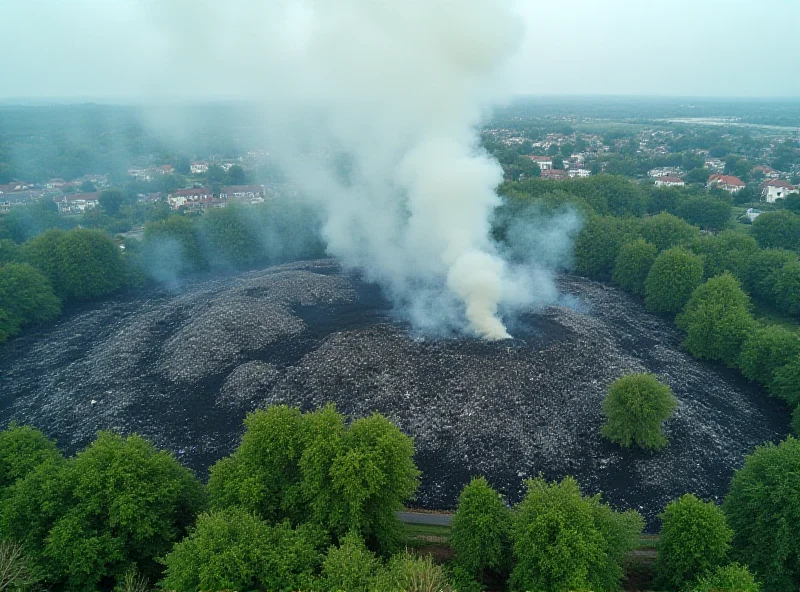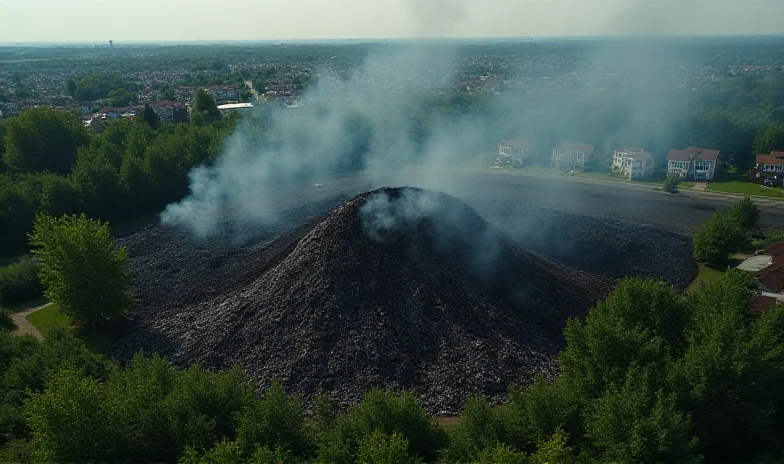This week, health concerns are at the forefront, with two distinct issues demanding attention. From a burning waste site in London to rising obesity rates in the Middle East, the challenges are diverse and pressing.
London's Toxic Waste Fire
For years, a waste dump at Arnolds Field in Rainham, east London, has been burning, releasing toxic pollutants into the air. Locals fear for their health, and frustration is growing over the lack of action to address the problem. The site, roughly the size of 24 football pitches, contains tonnes of illegally dumped waste fueling the ongoing fire.
One particularly disturbing incident underscores the danger. In July 2011, William Knowlden, an 11-year-old boy, suffered severe burns while cycling in the area. He fell into a crater and sustained third-degree burns on his foot, with doctors baffled by the absence of an obvious heat source. "It looked like it had been eaten by maggots," Knowlden recalled.

The persistent nature of this environmental hazard, dubbed the "Rainham volcano" by some, raises serious questions about regulatory oversight and the long-term health impacts on nearby residents. The lack of a clear solution continues to fuel anxiety and distrust.
Obesity Surge in the Middle East
Meanwhile, a recent study published in *The Lancet* projects a concerning trend in the Middle East: a dramatic rise in obesity and overweight status among young people by 2050. This increase is particularly alarming considering the region also faces significant challenges with malnutrition. The study highlights a complex interplay of factors contributing to this health crisis.

The *The National* reported on the study, emphasizing the need for targeted interventions to address both over- and under-nutrition in the region. Public health initiatives promoting healthy diets and active lifestyles are crucial to reversing this trajectory.
Other Health News
In other health news, research indicates that long-term night shift work can have significant adverse effects on the body. Branislav Moťovský, head of psychiatry in Trenčín, discussed these effects in a recent interview, highlighting the importance of understanding the potential health consequences of irregular work schedules.
Furthermore, studies suggest regional disparities in breast cancer prevention. For example, research indicates that women in the eastern region face three times worse access to breast cancer prevention compared to other areas. One study even suggested that living in western Slovakia is correlated with better breast health outcomes.

These diverse health challenges underscore the importance of proactive public health measures, environmental regulation, and ongoing research to protect and improve the well-being of communities worldwide.
